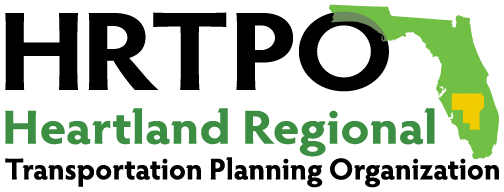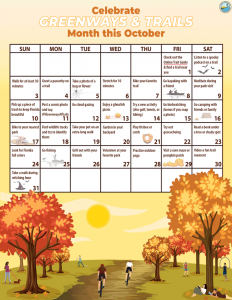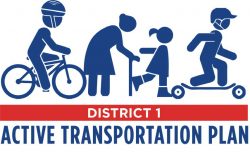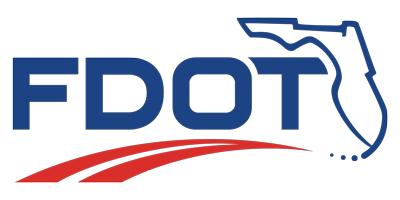The Heartland Regional Transportation Planning Organization (HRTPO) requires the services of a firm with transit planning expertise to perform a Feasibility Study and simulation for on-demand public transit services for Highlands County, Florida, with a focus on the Sebring-Avon Park Urbanized Area and develop recommendations that will inform the 2022 Major Update of the Highlands Transit Development Plan.
Submissions: Interested respondents should request a Proposal Package via email to Shannon McPherson at smcpherson@cfrpc.org. A complete package of items specified in the Proposal Package should be mailed or delivered to: Attention: Shannon McPherson; Heartland Regional Transportation Planning Organization, 555 East Church Street, Bartow, FL 33830-3931. All submissions must be received in the HRTPO’s offices by Monday, November 15, 2021, at 4 PM EST.
1) Can you share the HRTPO budget allocated for this feasibility study?
There is $40,000 identified in the Heartland Regional Transportation Planning Organization’s Unified Planning Work Program for consultant services related to transit planning for FY 2021/22.
2) As a non-US based organization we would plan to utilize non-US citizens for performing this work. This is likely not possible given the requirement to use the USCIS E-Verify program. Does HRTPO have any flexibility with respect to using the USCIS E-Verify program?
A foreign company may submit to the RFP if they have an office or presence in the US. If the foreign company does not have a presence in the US and the FTA procurement clause requires all applicants to the RFP to comply with the E-Verify program as described on the U.S. Citizenship and Immigrations Service’s web site, then the applicant would be ineligible to submit for the RFP.
Foreign companies with employees working in the United States under a federal contract with the FAR E-Verify clause must complete Form I-9 and use E-Verify for non-exempt employees. USCIS only allows companies located in the United States to enroll in E-Verify.
3) As part of this feasibility study, we would expect HRTPO staff to be available to help answer questions, participate in meetings and generally help understand the existing service as well as goals for new services. What HRTPO staff (by job title) would be available to participate in this study and is there an expectation on the amount of time those staff would be available to participate?
The following HRTPO staff will be participating in the study and will commit the time necessary to ensure project deliverables are met:
• Transportation Director
• Mobility Manager
• Grants Coordinator
4) Can HRTPO please indicate whether or not the boundaries of the service area are intended to stay fixed, or are flexible as part of this feasibility study? If it is fixed, can HRTPO please define it using a map?
The goal of the planning study is to focus on the Sebring-Avon Park Urbanized area of Highlands Counties, however the boundaries for this planning study are flexible.
5) Can HRTPO please share the form that riders use to register with the service?
The Registration form currently used by the Community Transportation Coordinator may be found here: https://securemtm.formstack.com/forms/hrtpo_rider_registration_form.
6) Can HRTPO please describe the stretcher, wheelchair and ambulatory capacity of each one of the vehicles in the fleet?
Quantity Model Ramp or Lift (specify) # of Seats and W/C Positions
3 Cut-a-way Lift 6+2
19 Caravan Ramp 3+1
9 Caravan LIFT 3+1
7) Is HRTPO planning on only using their existing fleet of vehicles to provide future service or are they open to expanding the vehicle fleet?
The HRTPO is open to expanding the vehicle fleet.
8) HRTPO has said that riders are required to request trips at least two days in advance. What other rules - if any - are riders subject to when making trip requests?
All current policies are outlined in Section II of the Transportation Disadvantaged Service Plan, which may be found at https://heartlandregionaltpo.org/programs-and-plans/. Including:
• Return trips are scheduled in advance. If the customer does not know the return time or is not ready at the scheduled return time, a vehicle will be dispatched upon notification; however, the wait for the dispatched vehicle can be up to two hours. When scheduling medical appointments, riders are asked to use their best estimate for the time for the return trip.
• As a courtesy to others, customers should be ready at least one hour prior to the scheduled appointment time. Longer trips will require earlier pickup times. Drivers will wait no more than five minutes for a customer.
• Customers must cancel a requested trip no later than one hour before the scheduled pickup time. Trips are canceled by calling the CTC.
• When scheduling trips, customers should be specific about the type of service required (i.e., wheelchair, ambulatory, escort.) and the destination (i.e., correct destination name, street address, suite number, and telephone number).
• There is a forty-eight (48) business hours (excluding weekends and holidays) advance notice requirement for all trips scheduled within the coordinated system, except under special circumstances, such as outlined in the Innovation and Service Development Grant.
• Clients may schedule up to two (2) weeks in advance for in service area trips and thirty days (30) days in advance for out of service area trips.
9) Any trip requests for the same rider must be a certain amount of time apart from one another
There is no current policy on the frequency of trips. Trip requests are based on availability of funding, drivers, and vehicles.
10) Can the RFP issuer please provide KPI targets and existing KPI metrics for the following? Daily ridership; Cost per trip.
Based on 2020/21, daily ridership in Highlands County was 102.2 with an average cost per trip of $53.51. There are no established KPI targets.
11) What is the purpose of tracking the purpose of trips?
Trips are tracked by purpose in order to provide required reporting to funding agencies.
12) Please elaborate on the funding sources behind the need for a demonstration that is required to cover “Rider eligibility to comply with various funding sources.”
The Community Transportation Coordinator utilizes Transportation Disadvantaged Trust Funds (Eligibility: Age, Income, or Disability) and FTA 5310 (Eligibility: Seniors and Individuals with Disabilities) in the Sebring-Avon Park Service Area. An on-demand system would need to incorporate one or both of these funding sources as there are not currently other operating funds available. The HRTPO may pursue funding that does not have eligibility requirements in the future.
13) Will trip origin and destination pair information from the scheduling system be provided to the consultant for to analyze existing services and trip making characteristics?
Yes, historical origin and destination information will be available.
14) What level of simulation or modeling is expected for Task 3? Is this intended to be a demonstration of the service? Or is this intended to define service demand density and service supply requirements?
The simulation or modeling is intended to define the service demand density and service supply requirements.
15) Are you expecting to develop a pilot on-demand service as a direct result of this project? Or are you expecting as a result of this project, to pursue funding and design partnerships to develop and deploy a pilot or permanent operation?
The HRTPO will utilize the findings of this feasibility study to develop a Transit Development Plan for Highlands County. Based on finding of the study, funding, and partnerships, it is the intent to establish on-demand service in the service area.
16) Is it your expectation that any resulting service will be operated through your existing operations contract using a SaaS solution or are you looking for a combined SaaS and operator MaaS solution?
A recommendation on the integration with the current operations is to be provided by the selected firm. The HRTPO does not have an expectation that resulting service will either be SaaS or SaaS/MaaS.
17) As per the RFP, on page 5, it states " Work to be performed subject to the funding agreement between the HRTPO and the Florida Department of Transportation. Selected firm must comply with the E-Verify program as described at the U.S. Citizenship and Immigrations Service’s Web site: http//www.uscis.gov and all applicable Federal Clauses outlined in Attachment B." As Pantonium is a Canadian company, does this exclude us from responding to this RFP?
A foreign company may submit to the RFP if they have an office or presence in the US. If the foreign company does not have a presence in the US and the FTA procurement clause requires all applicants to the RFP to comply with the E-Verify program as described on the U.S. Citizenship and Immigrations Service’s web site, then the applicant would be ineligible to submit for the RFP.
Foreign companies with employees working in the United States under a federal contract with the FAR E-Verify clause must complete Form I-9 and use E-Verify for non-exempt employees. USCIS only allows companies located in the United States to enroll in E-Verify.






